Seeds of Change Becoming Difference Makers
By Jeff Jernigan, PhD, BCPPC, FAIS
*This is an article from the Winter 2024 issue of Combat Stress
It was 1990, and the Wall coming down between the Soviet Union and Western Europe was historically behind us, when a friend and colleague from our undergraduate years brought up an opportunity that would change my life forever. His organization had been approached to provide a conference for the Russian Ministry of Defense designed to help the Russian Military downsize their Armed Forces into the civilian population. Large scale organizational change was my specialty, but nothing on this scale!
The conference would be attended by the top six hundred generals in the Soviet Armed Forces. Western experts from America and Europe would be recruited to provide instruction in all manner of disciplines involved in transitioning tens of thousands of men and women into civilian pursuits. Related to mental wellness in downsizing, we were also asked to cover coping skills for suicidal ideation, suicide prevention, stress disorders, anxiety and depression. Russia was out of money, broke, and the reformers wanted outside help to recover. The only problem was the hardliners didn’t want outside help at all. If they could not prevent the conference from taking place, they certainly wanted to control the money and the conference. This tension between the reformers and hardliners meant continuing interference and struggle for control would present numerous difficulties for us. My friend asked me to be the Program Director. The conference was to take place late in 1992. There was a lot of work to do in less than two years.
During those weeks and months, especially as the week-long conference dates drew near, things became weird. During the time we spent in Moscow getting ready, the KGB followed us, the GRU interviewed us, we were saddled with disingenuous interpreters, electronically monitored in our hotel rooms, offered compromising entertainment, threatened, pushed around, arrested, and threatened with deportation, accused of sedition and put on trial. Each obstacle was handled in turn by our team, which eventually included embassy personnel and American military observers. We got through it, finally, and produced a world-class conference.
The whole story would fill a book, but there is so much more to tell about the importance of planting seeds that will bear fruit well into the future. Some lasting results came out of the conference: we were able to solidify our relationship with the Russian Orthodox Church, and were also afforded induction into a Holy Order, which has opened doors for us across Eastern Europe for more than thirty years. We were asked to provide policy advisement, which eventually produced legislation preventing religious discrimination in the Russian Armed Forces. We developed friendships and connections with many influential people in and out of the government and military, which very soon took us to Ukraine. Our longest standing national office for the work we do providing healthcare, education, leadership development, and family support is in Kyiv, Ukraine.
Along the way, we learned a very valuable lesson. The amount of waiting, changing, and struggling required to bring about something significant is directly related to the importance in the future of the success you seek. This is why in our engagements we always seek to influence change in the present through specific goals, but also to lay the groundwork as invisibly as practical for ongoing change in the future…like a seed planted in the garden unseen until it sprouts. If our work in the present does not support future healthcare, education, leadership development, or family support, we must re-think what we are doing in the present. Efforts in the present should also support longer term impacts in the future. 
This became clearer as we began working with physicians and hospitals. Providing training was not enough to effect lasting change. Our involvement in Russia came to an end with a regime change, but we took this insight with us as we responded to other invitations. Today, in addition to education, we provide practicums for mental health professionals, round on patients with psychiatric residents, provide case review and management for social workers, use interns where practical, and work alongside first-responders to model self-care in the midst of crisis. These are just a few of the seeds we plant that equip people, not just to use what they have learned, but to practice it and teach it to others who can teach it to others as well.
During the conference a young Russian Major was assigned to be our liaison. We got to know him and his family well. The economic collapse of the Soviet Union in those days was hard on everyone and his family was no exception. We provided for their needs as best we could with money for food, over-the-counter medications for his children not available there, and open encouragement. His home was in Ukraine and, some years later, when Ukrainian officers were given a choice to remain in the Russian Army or return to Ukraine to serve in their armed forces, he chose to take his family home.
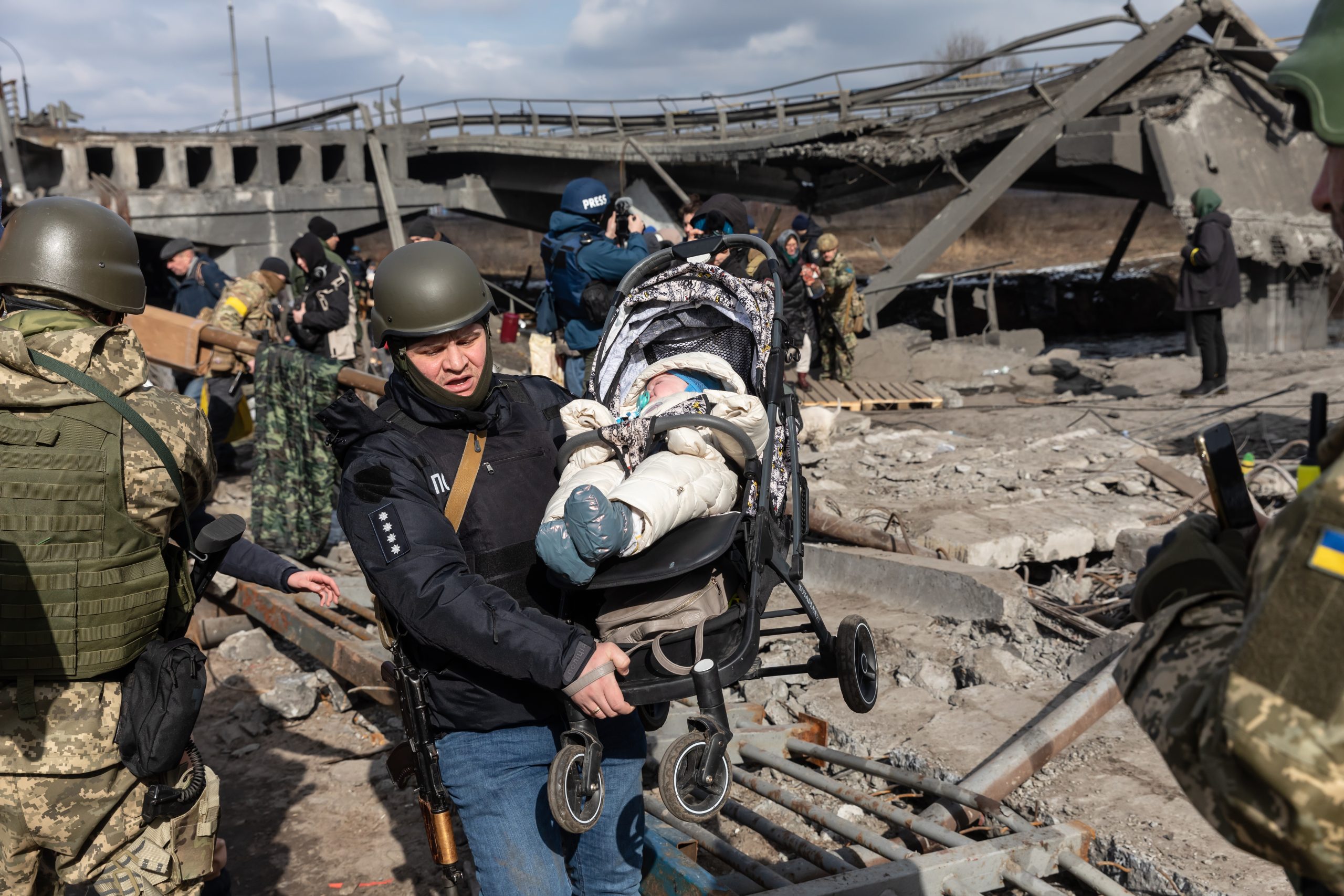
Eventually, we received an invitation to work in Ukraine, with the army training them how to treat suicide prevention, suicidal ideation, trauma and trauma disorders. The engagement was successful, and suicide went to zero in the battalions where training had occurred. Some time passed and a call came again for help. These same units were experiencing an increase in non-suicidal self injury (NSSI) and self-directed violence (SDV), including suicide. Looking closer, we discovered that the people previously trained had done an excellent job, but never trained anyone else. When these personnel were transferred or retired, there was no one with our training left behind to deal with the reoccurrence of these problems. That problem was dealt with right away and with great results. This time, we left curriculum behind to help prevent a recurrence of this oversight. Another lesson learned.
Eventually, we were asked/required to become an official organization, which would make it a lot easier for various Ministries of Health, Education, and Defense to invite us to be of help or encouragement. This would mark the 1994 birth of Olive Branch International, Inc., a faith-based humanitarian relief organization specializing in preparation for and response to mass violence and disaster. We continued our work with the international military community and gradually were drawn into serving civilian populations in third-world countries, where the military also provided the infrastructure for fire and police services, as well as medical services. We were also being drawn into serving Veterans and their families, with a stronger focus on trauma and attachment injuries, stress disorders, and general mental health issues. This led to working with healthcare professionals, social workers, pastors, teachers, and first-responders.
Today we are staffed with world-class volunteer expertise in medicine, mental health, speech pathology; crisis de-escalation, disaster management, policy advisement, curriculum development; leadership development and education. Nearly all of these volunteers and staff are former members of the military. By 2005, we were receiving invitations that we could not respond to because they were beyond our scope, outside our mission, or not a good match for our criteria for engagement or methodology. At this point, we were learning the importance of like-minded partners to bring alongside. Whereas Olive Branch was structured for short-term emergent situations, partnering organizations could have an ongoing impact.
We currently partner with Omuto Uganda and their holistic work in K-12 education; Rebuild the World Foundation and their work in rebuilding communities and homes after a disaster; Arizona for Ukraine and their work in providing basic needs for clothing, medicines, blankets, fuel, and food for the displaced; Mission of Hope International and their work in the slums to provide education, medical treatment, and meals for K-12 students and their families; Wells of Life to drill wells for schools and communities in Africa; Marketplace Ministries Worldwide for their work in establishing micro-enterprise businesses in impoverished communities as a means for moving from dependence to independence, removing the need for continual funding from sources outside the community or country (they call this Smart Generosity); the Association for Christian Conferences and Service who build military leaders and Christian Military Fellowships worldwide, and the Fellowship of Christian Military . 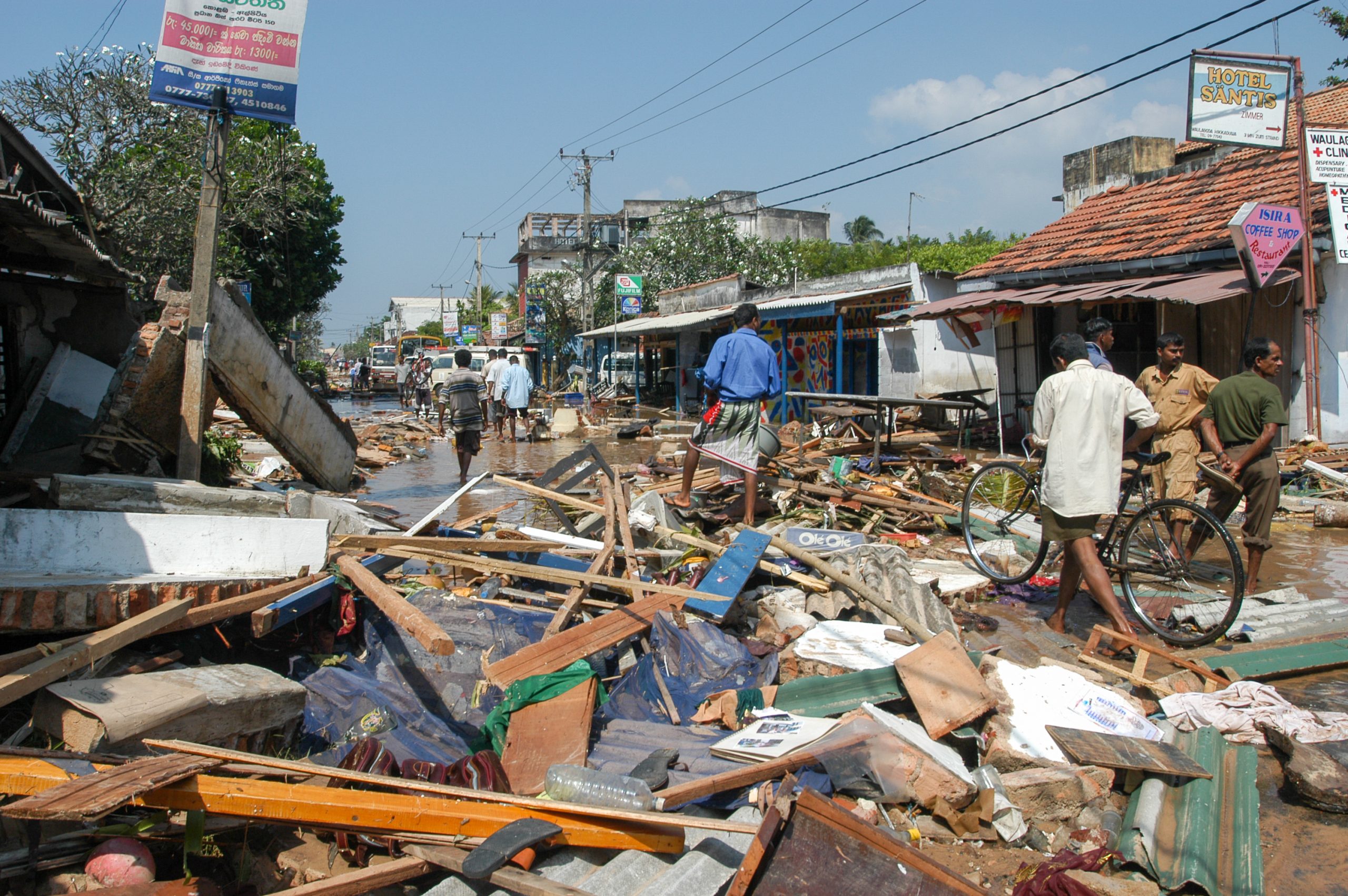
We eventually absorbed Marketplace Ministries Worldwide and their emphasis on Smart Generosity into our own line of service. Each partnership represents a seed for a future harvest beyond our reach. We also co-founded a protestant seminary in Kyiv, Ukraine to train pastors and chaplains. We learned early to use chaplains because their training enables them to work in high risk or conflict zones, engage in social work serving communities, and because of their near universal acceptance in most countries serving the military, hospitals, and prisons. They are also trained in our version of Community Safety Nets, which is a pop-up disaster management plan and infrastructure method for helping small communities and villages respond to a crisis or disaster. Ukraine has put this to the test as more cities and villages become isolated from more direct lines of support.
Not all has gone smoothly or even well for us over the years. We have had to learn to respond appropriately to con artists who have defrauded us, institutions who have wanted to exploit us, and disingenuous people who have tried to use us to support their agenda. Trust but verify: another lesson learned from our mistakes and failures. There have been losses as well. Two of our female chaplains were captured by the Russians early in the present conflict with Ukraine and removed to Belarus. Released after some time, they returned to their homes and are no longer serving as chaplains. We lost two people in Sierra Leone due to Ebola, a physician and a chaplain’s wife. 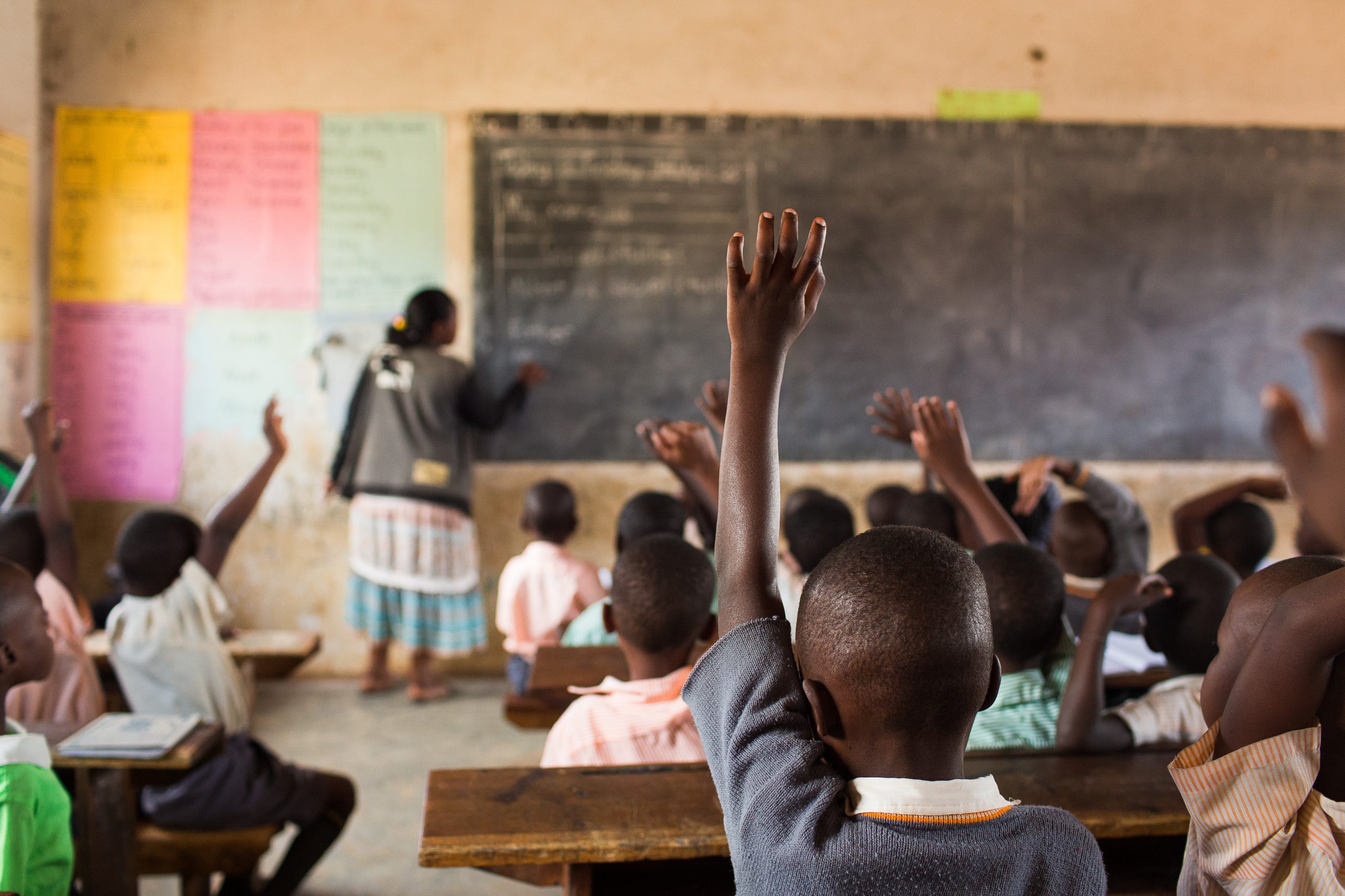 Our team helping first-responders dealt with more than 34,000 bodies in the first few hours of the tsunami in Sri Lanka and before they became trauma victims themselves. One of our team members was abducted in Trinidad (to be rescued later). One of our sponsors, a Chief of Police, was assassinated in Haiti. We have had people thrown off trains, detained for hours, dropped off in snowstorms at wrong destinations, surrounded by abandoned buildings, guarded by gang members in order to protect us from other gangs so we could do our work, marooned without transportation in Siberia, infected by COVID, and aggressively protested at more than one venue over the years.
Our team helping first-responders dealt with more than 34,000 bodies in the first few hours of the tsunami in Sri Lanka and before they became trauma victims themselves. One of our team members was abducted in Trinidad (to be rescued later). One of our sponsors, a Chief of Police, was assassinated in Haiti. We have had people thrown off trains, detained for hours, dropped off in snowstorms at wrong destinations, surrounded by abandoned buildings, guarded by gang members in order to protect us from other gangs so we could do our work, marooned without transportation in Siberia, infected by COVID, and aggressively protested at more than one venue over the years.
The seeds that have been planted over thirty years by this rich work have grown and become juggernauts for change in far away places. We were invited to Moldova, based on our work in Kyiv, to help end an epidemic in child suicide, as well as stem the tide of military suicides. We were invited to work with the Police in Mongolia based on a recommendation from Sri Lanka. Our work in Mozambique produced an interest in Rwanda to help them understand why the third and fourth generations following the genocide were still traumatized. This national survey produced a mental health initiative backed by curriculum. We produced the first chaplaincy and life coaching courses offered by a university in Malaysia’s history and made sure a sponsoring professor was there to keep the seed fertilized. People from all over the Pacific Rim attended. Our comprehensive work in Central Africa helped connect us with Kenya and our work with Mission of Hope International in the largest slum in the world. Our focus was mental wellness and to teach counseling basics. A small school planted in northwest Uganda now has more than 1,000 students, two wells, a boarding school, agriculture that feeds the students and supplies area farmers with income, a grain mill, and electricity. Our work in Family Support in Ukraine has blossomed into a huge ministry to women and families across the country. Oh yes, the young Major we met in Russia. He became a Major General and was instrumental in stopping the massacre of civilians in the Orange Revolution in Kyiv.
We are a responder organization providing essential services focused on recovery from mass disaster or violence. Disaster can include war and violence, famine and disease, economic collapse and poverty, or natural disaster. In all, we have completed more than 300 projects in 42 countries over the last 30 years. Interventions are varied and include our own first response in aiding first-responders in the field, as we did in Sri Lanka. It can be a response to needed changes in the academic infrastructure providing training of professionals involved in disaster relief and trauma recovery as we are providing in Rwanda. It can include policy advisement at the level of government agencies designed to sustain the gains achieved through the involvement of relief organizations, as we have provided in Ukraine, Moldova, and Rwanda.
We do not sell our services involving healthcare, education, or leadership development. Instead, we respond to invitations to serve. These invitations are as varied in geography as they are in cause and typically result from word-of-mouth from one country to another. We do not advertise and do not solicit engagements. We constantly focus on equipping ourselves to serve, while providing the highest level of care at the lowest cost while requiring minimal support from those we serve.
We believe that all human life is sacred and created by God in His image. Human life is of inestimable worth in all its dimensions, including babies in the womb, the aged, the physically or mentally challenged, and every other stage or condition, from conception through natural death. We are therefore called to defend, protect, and value all human life.
We know we cannot change entire cultures. We have chosen for the most part to focus on disenfranchised, marginalized, and impoverished populations and those who serve these populations, influencing change in people and systems in order to lift people higher. With thousands of similar organizations around the world serving the same needs, large scale change can and does happen. We also understand how large-scale change in cultures can happen. Kenya is a good example.
Their history is one of multicultural tribes moving into the country over hundreds of years looking for a better life. Each tribe had its own language, and within that language, multiple dialects, resulting in confusion. Kenya now has declared English to be its official language, with Swahili as the national language. Eventually, tribal languages will diminish. Imagine a future where Kenyans are not separated from each other or from other Central African countries by language barriers. We had nothing to do with this, but we certainly learned from it.
Other examples of large-scale culture change include women in the American workplace post WWII, due to their introduction to manufacturing and other industries, as men were increasingly absent while serving in the various branches of the military. This continued after World War II and contributed to the boost in the U.S. economy and the rise of dual-income households. Technology the world over brings change with it as well. Transistor radios replaced vacuum tube radios, televisions changed communication forever; cell phones and the internet became a force of cultural change almost by themselves. When we talk about generational social paradigms like the Greatest Generation, Baby Boomers, Gen X, Millennials, and Gen Z, we are actually talking about the shift in cultural values. Each generation grows up responding to their parents’ experiences, while at the same time, figuring out how to respond to the realities of their own time on the planet. 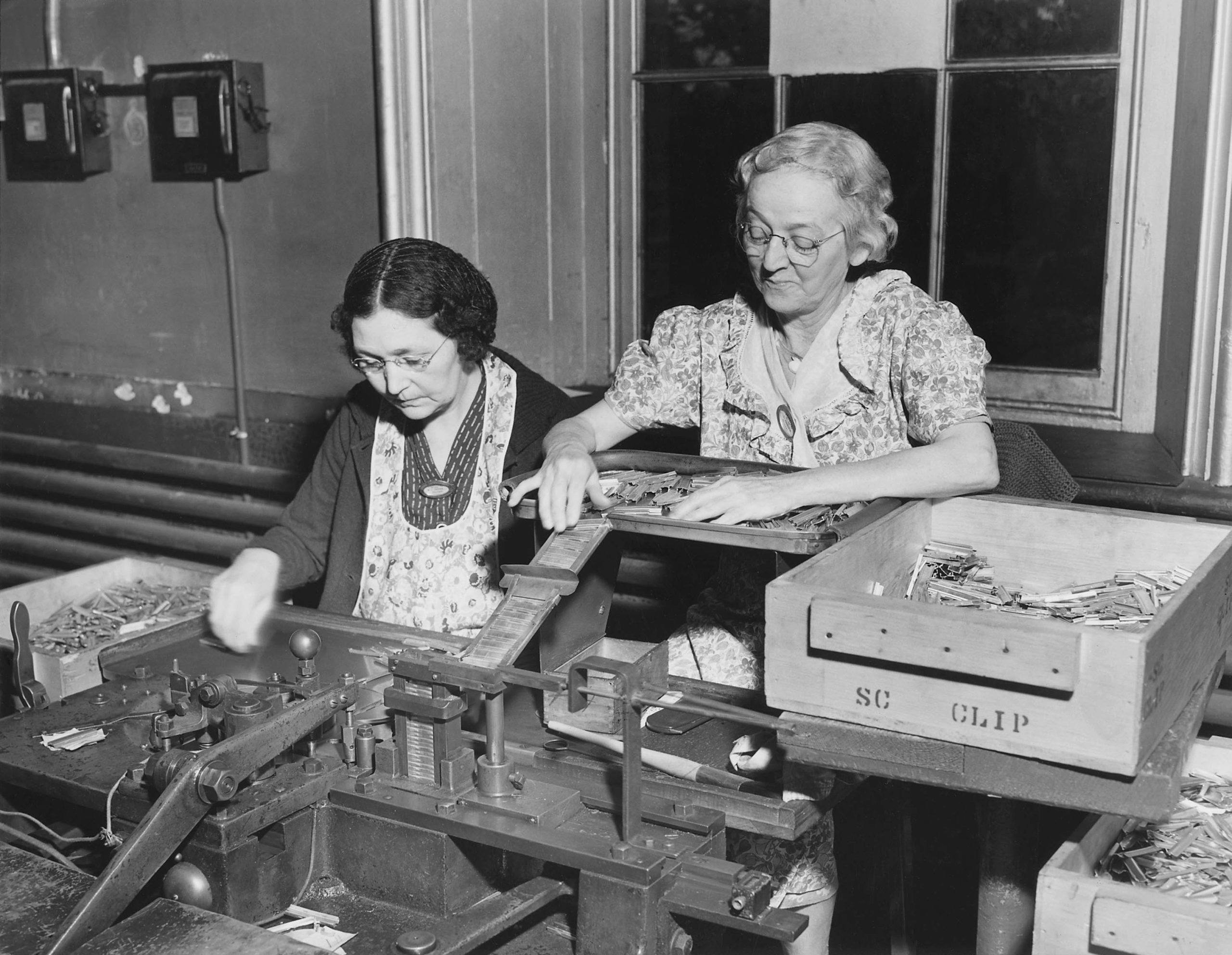
Culture is always shifting, sometimes slowly and nearly unnoticed, and sometimes so rapidly, it seems that we cannot keep up with all the changes. In part, this is due to the nature of culture and its expression of how people en masse adapt to the realities and requirements of the world in which they live. We see this in languages and words, used which collectively, reflect cultural norms, taboos, customs, and institutions. This form of large-scale change is a matter of providence and circumstance. On a smaller scale we can measure culture by people, communities, and populations.
There is a common set of values all people hold to different degrees when assessed in their native language.1 This work was continued by the University of Michigan until a framework for measuring values was fully developed.2 Today it is used globally to measure culture of large populations, especially organizations.
If culture can be measured, it can be influenced to change on a smaller scale, beginning with people and organizations. Patterns emerge useful to understanding the differences between cultures (e.g., American culture as compared to European culture, African culture, or Middle Eastern culture). Ninety percent of an individual’s behaviors can be explained by the top six to eight cultural driving values they share to some degree with other people. These change slowly over time, reflecting changes in their real-world environments. Now we have a basis for incentivizing the best expression of these values in ways that can cumulatively shift value-driven behaviors, planting small seeds in people, groups, and communities as we also address basic humanitarian needs.
Science helps us understand how this actually works. We know that from birth, the experiences we have shape our memories, create new neural pathways, and can change our DNA.3 Experiences, in this case, involve our relationships, our good memories, as well as trauma we have experienced; the demands of life, the culture we grew up in and the resulting values that influence our thinking today. We can’t control the process, but we can create the environment for people to choose change. Our humanitarian work plants small seeds of healing, health, and hope, while our partnerships multiply our impact and create environments conducive to larger change. We lead with relationships, serve with expertise, and use a methodology that not only meets needs in the present, but makes possible continuing change in the future no matter the source.
Here are some lessons that have made us difference makers globally:
- Accept that success of your mission does not happen without waiting, changing, and struggling. Determine to struggle well.
- Lead with relationships, value everyone, be present.
- Leave a legacy for the future through training and policy advisement. Model what you teach and make reproduction of those things simple and easy.
- Plant seeds today that can also bear fruit in the future. Modify or set aside those plans that do not include potential success in the future. Smart Generosity is an example of helping people in a manner that equips them to help themselves and others.
- Hire for character and gifts, not simply because someone is available.
- Multiply impact through alliances and partnerships with people and organizations of similar vision and morality.
- Understand the culture you work in and let your host take credit for what you do. In closed or limited access countries, this may often be more the reason you were invited in than your expertise.
- Trust but verify. Understand the yin and yang of your culture and the culture you are interfacing with in your work.
- Grieve your failures and your losses. Learn from them, but do not minimize them.
- Take the long view when you measure your success. Use numbers only if you have to.
These lessons learned are part of a continuum as we move forward with our work. They are part of what enables us to be difference makers. They are flexible and not proscriptive, since we all are changing just as the world is changing. Always in change there will be things that need to stop, things that need adaptation, and some things that especially will need to continue. Difference makers are also known as change agents.
There is a life changing lesson I personally learned that is not on the list. Remember the examples of things that did not go well, including having one of our team members being abducted? That occurred in Trinidad many years ago early in the development of our work in risk and conflict zones.4 The whole trip was plagued by problems, obstacles, disappointments, and serious trouble.
We arrived amid a constitutional crisis which occurred while we were in flight to the country. A constitutional crisis had occurred, and the military and law enforcement forces abandoned their jobs and went home. We landed in a lawless land controlled by gangs. First, there were problems at customs that resulted in threats of confiscation of everything we brought with us for the trip as well as potential detainment. Getting past that with all our baggage and supplies, the hotel we were staying in evidently was also a regional gang’s headquarters. There were several harrowing confrontations for much of the time we were there. We were unable to connect with our host at first, unable to arrange a visit to the largest hospital in the country to evaluate what was needed medically and administratively and could not safely leave the hotel to meet with those who had invited us also to help defuse a prejudiced and discriminatory relationship developing between two large communities of African and Indian citizens in the city of Port-au-Prince.
One evening just a few days into our trip there was a banging on our hotel room door. One of the members of our team was clearly panicked describing how one of our team members had been abducted and taken to the basement of the hotel. She was a volunteer with a health issue requiring an insulin pump and additional refrigerated medicine (which was a problem since we had to use ice in a cooler to keep the insulin cool.) Up until this time, we had focused on helping the team remain calm, optimistic, and hopeful as we worked on one problem after another. Hope, as a confident expectation of a positive outcome was waning, and now this! My biggest fear was that she had been abducted to hold for ransom as so many foreigners already had been even before all the lawlessness set in.
As I pushed past the messenger at the door, they asked where I was going. “To get Judy back,” I replied,” and his eyes grew larger, “and you are coming with me.” His eyes nearly bugged out! He led me to where she had disappeared and down into the dark we went. The dimly lit corridor revealed an open door further down the hallway spilling enough light out to see a very large armed guard standing just to the side. I stopped and looked in. There was Judy sitting across from the gang leader we had run into before. It appeared he was interrogating her. Smiling at the guard and pointing through the door, he simply nodded, and I went in. My buddy was not permitted to enter and waited at the door.
As it turns out, the gang leader liked what he understood about our purpose for being there but was conflicted with suspicion that we were law enforcement or intelligence personnel sent form the United States somehow connected with the constitutional crisis. They had abducted what they considered to be the weakest person in our group and just wanted information. The following conversations was stunning! The gang leader assigned us armed guards to take us wherever we needed to go, meet with whomever we needed to meet with, and complete the work we were sent to do. Which we did, crossing gang borders without a problem, meeting those we needed to connect with, and accomplishing all our goals.
Here is the lesson that changed my perspective on risk and conflict zones. Hope never runs in a straight line, is not visible, is not fulfilled according to my timing, but is always present, always working, and always rewarded. This has proven to be true repeatedly even in the midst of loss and grief. So much so, our tagline eventually became Bringing Healing, Health, and Hope to the World.
References
- Rokeach, M., The Nature of Human Values: Free Press 1973
- Cameron, K., An Introduction to the Competing Values Framework: Haworth 1999
- Cozolino, L., The Neuroscience of Human Relationships, 2nd Edition: Norton 2006, 2014
- Jernigan, J., Jernigan, N., Thin Spaces: Westbow Press 2024
ABOUT THE AUTHOR
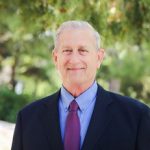
Jeff Jernigan is the editor of The American Institute of Stress, Contentment Magazine. He is a board-certified mental health professional known for influencing change in people and organizations by capitalizing on growth and change through leadership selection and development. Jeff currently serves Stanton Chase Pacific as the regional Life-Science and Healthcare Practice Leader for retained executive search and is the national subject matter expert for psychometric and psychological client support services.
A lifetime focus on humanitarian service is reflected in Jeff’s role as the Chief Executive Officer and co-founder, with his wife Nancy, for the Hidden Value Group, an organization bringing healing, health, and hope to the world in the wake of mass disaster and violence through healthcare, education, and leadership development. They have completed more than 300 projects in 25 countries over the last 27 years. Jeff currently serves as a Subject Matter Expert, Master Teacher, Research Mentor, or Fellow in the following professional organizations: American Association of Suicidology, National Association for Addiction Professionals, The American Institute of Stress, International Association for Continuing Education and Training, American College of Healthcare Executives and the Wellness Council of America.
Combat Stress Magazine
Combat Stress magazine is written with our military Service Members, Veterans, first responders, and their families in mind. We want all of our members and guests to find contentment in their lives by learning about stress management and finding what works best for each of them. Stress is unavoidable and comes in many shapes and sizes. It can even be considered a part of who we are. Being in a state of peaceful happiness may seem like a lofty goal but harnessing your stress in a positive way makes it obtainable. Serving in the military or being a police officer, firefighter or paramedic brings unique challenges and some extraordinarily bad days. The American Institute of Stress is dedicated to helping you, our Heroes and their families, cope with and heal your mind and body from the stress associated with your careers and sacrifices.

Leave A Comment
You must be logged in to post a comment.